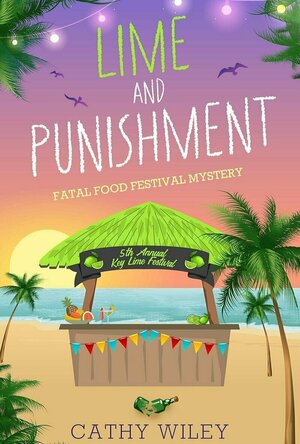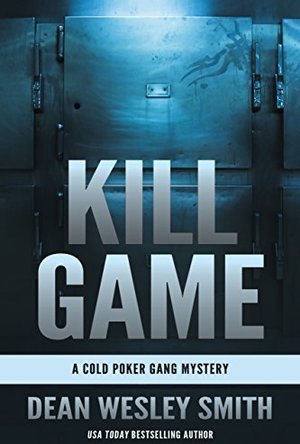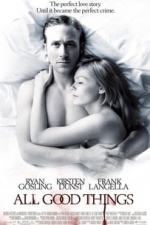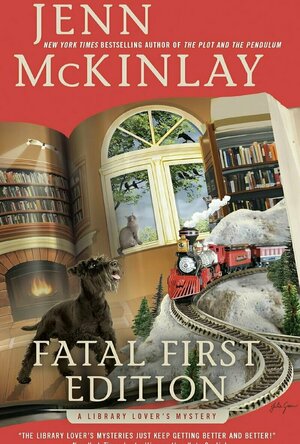
Fatal First Edition
Book
People are dying to get their hands on a rare, valuable book in the newest Library Lover’s Mystery...
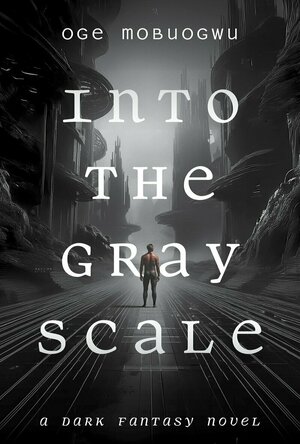
Into the Gray Scale
Book
Dead men can’t catch killers. But maybe with the right help, they can bend the rules from the...
Dark Fantasy Mystery Suspense Paranormal Urban Fantasy
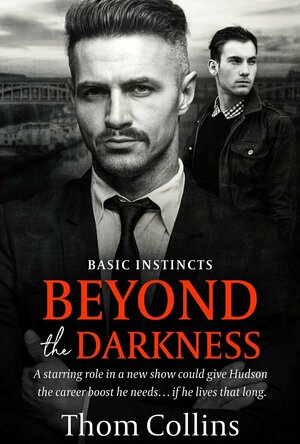
Beyond the Darkness (Basic Instincts #3)
Book
A starring role in a new show could give Hudson the career boost he needs… if he lives that long. ...
Contemporary MM Crime Mystery Thriller Romance
Mark @ Carstairs Considers (2492 KP) rated Lime and Punishment in Books
Jan 14, 2026
This book sets up the story as quickly as possible and then delivers a mystery filled with plenty of twists, great suspects, and red herrings along the way to the logical climax. All of Jackie’s friends are present, and they continue to provide the cozy core of these travel stories. I love how some relationships continue to evolved. We also get a nice dose of puns and other humor. There are plenty of key lime based recipes, and not all of them dessert. I was thrilled to be back for Jackie’s latest adventure. Fans new and old will find plenty to enjoy here.
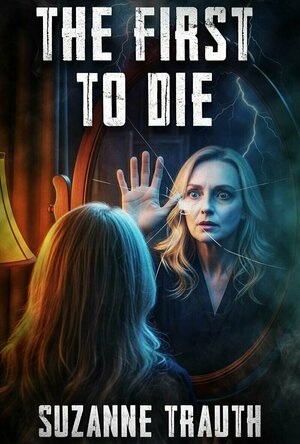
The First to Die
Book
Connie Tucker, a free-spirited beach bartender, has been estranged from her family in New Jersey...
Psychological Mystery
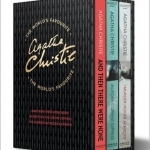
The World's Favourite: And Then There Were None, Murder on the Orient Express, The Murder of Roger Ackroyd
Book
A boxed set of the three books that have been confirmed in a popular vote as the World's Favourite...
Kill Game: A Cold Poker Gang Mystery by Dean Wesley Smith was a fabulous book. As you follow the retired detectives and try to piece together all the evidence and clues they obtain to solve this case, you can’t help but begin to wonder what the whole story behind the dead ex-husband is. Who was he really and what could cause him to find trouble that would get him killed. In this mystery you get to sink your teeth in such a mystery that you try to figure it out yourself as you read, hoping to beat the detectives to their own results. With the twists and realizations of uncovered secrets and lies, you can’t help to find yourself in the shoes of Detective Rogers as she learns about her dead husband’s life and all this secrets.
Wesley had written the book extremely well with only one minor issue that may go undetected to someone reading it without doing a double take. On page 134 instead of using Detective Julia Rogers name, Detective Lott’s daughter name was used. At first I almost missed it, but as I continued reading the page I realized Annie wasn’t on the phone of even with them at that particular point. This wasn’t a huge flaw, but one I kind of wished was caught before publishing as I had to read the page eight times before realizing it had to be a typo. I totally understand typos happen, but it was just a slight irritation. Wesley was able to write such beautiful if no graphic at time scenes, that it was easy to get lost in the story rather quickly. Adding humor and romance to underlying tones makes it hard not to admire how he could capture the essence some detectives have after many years in service. It was truly amazing to read. I found the mystery truly astounding and enjoyed getting to know the characters and seeing how different eyes can bring knew things to light as well as new questions to be asked.
I really enjoyed how Wesley was able to bring in the interesting things detectives working on cold cases would do or ask and how having links to help gather information and to get to different places can help a cold case make it easier to find clues and solve a case that has little to no information. I have always had an interest in cold cases and found that being walked through how the team of retired detectives solves this case brought so much excitement and interesting things that makes you wonder if you could solve cold cases yourself if you had the money and resources that these detectives have. As you try to figure it out with them you can’t help to make mental notes and develop your own theories and questions that you may wish to have answered or worked through. Wesley easily makes you feel like you could be a detective.
Kill Game: A Cold Poker Gang Mystery is the first book in its series and definitely leaves you craving the next one. With all the aspects in view that makes a mystery good, as well as the depth of the characters, you will find yourself wanting to take notes alongside the detectives. This makes it harder to put the book down while you're craving a new cold case to solve. I absolutely loved this book. I rate it 3 stars out of 4 because of the minor error in the text. Other than that, I definitely recommend this book to anyone who is looking to sink their teeth in a murder mystery that had become a cold case and solved 22 years later.
Zuky the BookBum (15 KP) rated The Mistletoe Murder and Other Stories in Books
Mar 15, 2018
I decided I wanted to read a seasonal book this year and I found this one lurking on my shelf from last year when I also decided I wanted to read a seasonal book but didnt.
Ive reviewed each of the short stories one-by-one. Theres only 4, so its not a massive review, dont worry!
~
<b>The Mistletoe Murder</b>
I really loved the writing in this one! It hooked me straight away. I instantly connected with our narrator, even though shes a bit of an enigma. With short stories, you rarely get to know the characters very well, but I liked how our narrator was strong willed and sassy.
This story is a classic whodunit murder mystery. Not as complex as Christie, but definitely gives off those vibes. The conclusion to the story was pretty obvious, but the last little paragraph bought a smile to my face!
~
<b>A Commonplace Murder</b>
This one takes on a completely different tone from the story before it. Rather than being a cosy murder mystery, this one is that little bit darker. Youre introduced to a not very likeable narrator who holds an innocent mans freedom in his hands.
The story for this one is grittier and dirtier and comes to a shocking conclusion. When I first finished this one, I was adamant I didnt like it, but after letting it brew for a while, I realised that this one is very clever, and since it was published in 1969, was probably innovative for its time, and I can appreciate that!
~
<b>The Boxdale Inheritance</b>
This one was definitely my least favourite of the batch. It was definitely still a nice old school mystery to read about but it wasnt exactly exciting like the last two. This one took me a little longer to read than the others because I was getting distracted by various bits which didnt happen when I read the other two stories.
It was a nice introduction to Dalgliesh, and I think the conclusion of the crime was actually more intricate than the others, but it didnt gel with me like the others did.
~
<b>The Twelve Clues of Christmas</b>
I really liked this story in the collection! I connected with Dalgliesh in this one much more than I did in the other beforehand. I also liked how the characters in this one were sassy and outright with each other.
Even though the crime in this was easily guessable, I really enjoyed the way it was set out and how we came to know about the 12 clues of who committed murder!
~
Even though I hate a modern cosy mysteries, when it comes to old-school ones, I love them! This short story collection was exactly what I needed to help me on the track to enjoying reading again. I read it one sitting, and even though it is a short book, thats not something I do very often, so it really had me hooked!
Darren (1599 KP) rated All Good Things (2010) in Movies
Jan 21, 2020
Story: All Good Things starts as we see David Marks (Gosling) the son of a property tycoon Sanford (Langella) who meets Katie (Dunst) who eventually becomes his wife, only for the perfect marriage to take a turn when Katie learns David doesn’t want to have kids.
The marriage continues to spiral out of control after Katie gets pregnant, with her disappearance being the reason why David sees his own life come under the spotlight, with people believing her murdered her and he doesn’t help his case.
Thoughts on All Good Things
Characters – David Marks comes from a property tycoon family who could have walked into any job for his father, he decides to go away from this lifestyle, dating a woman before marrying her, which shows a darker side to his nature, or is he just cold, he are never let into see if he is a calculated person or just somebody dealing with the issues bought on from his mother’s suicide. Katie is the woman David marries, she does give up her career and after learning of his own life decision, spirals out of control with drinks and drugs, before disappearing without a trace. Sanford is the father of David who wants him to remain in the wealthy lifestyle following in his footsteps over anything else. We do see many other people who are involved in the lives who have been involved in the lives even if the names have been changed.
Performances – We have a brilliant cast on paper here with Ryan Gosling in the leading role, where he really doesn’t show his skills, Kirsten Dunst does the most with her character, only it seems we don’t get the right outlet for the character, where we also seem to waste Frank Langella too.
Story – The story follows a heir to a successful business that marries a women his family don’t approve of, only for her to go missing, with him being the prime suspect in the disappearance. The problems mount up quickly in this story because we do spend way too much time focusing on the early relationship and not enough time on the investigation to what might have happened, this is clearly the more interesting side of the story that we need to get watching before needing to care that much about their relationship as a hole.
Crime/Mystery/Romance – The crime is more about if, buts or maybes, with no concrete evidence to what might have happened, which shows in the mystery not being solved in the film, while the romance starts strong before showing why it might not have worked out.
Settings – The film uses a couple of settings which shows us the luxury lakeside house the couple have, while showing how they interact with people on a social occasion in the big parties.
Scene of the Movie – Strange new friendship.
That Moment That Annoyed Me – Not enough focus on the disappearance investigation.
Final Thoughts -This does feel like a film that gets caught up following the wrong part too easily, we don’t seem to get any clues to what did actually happen, just following the man’s life for large parts both before and after the disappearance.
Overall: Disappointing mystery.
Gareth von Kallenbach (980 KP) rated Inherent Vice (2015) in Movies
Aug 6, 2019
Phoenix is a transformative actor, delving deep into his role. We’ve seen him do it before in movies like “Walk the Line.” He becomes his character to the point that it is conceivable this just might be the real him.
It is set in bohemian 1970s California. Everything from the way the camera captures the scene, to the outfits that adorn the characters, exudes a hippy-grunge vibe.
The film encompasses multiple genres including crime, comedy, and drama.
Similar to movies like “The Big Lebowski,” it is filled with humorous moments as Doc, a well-meaning and laid back stoner, is constantly found in the middle of the proverbial shit.
When his ex-girlfriend Shasta Fay (Katherine Waterston) reappears one random day, telling him of a plot to kidnap her billionaire boyfriend and then disappears shortly after, Doc becomes consumed by his investigation into her whereabouts. He is led into a conspiracy-like web of drugs, crime, and corruption.
It is not a typical movie with a coherent storyline, rather it is an experience of what Doc goes through as a mind bending mystery unfolds before him.
Strange, subtle details leave a trail of breadcrumbs for the audience to follow along with Doc, as he tries to make some sense out of the connections he stumbles across.
The plot transpires in a blur, floating into the perceptions of the audience like the winding smoke of an opium den. With a few dull moments, it drags on at times, much like the reality of human experience tends to do.
The musical selection only adds to the film’s tantalizing stylistic ambiance – at times it’s a dull and prolonged high, other times it’s a seedy bluesy underground, or absolute instrumental lunacy. Interestingly, much of the music was composed by Radiohead lead guitarist Jonny Greenwood.
Adding to the intricacy and authenticity of the film, is a brief cameo by what is perhaps the most psychedelic band of our time, The Growlers. This moment will only be recognized by fans who are paying close attention, but is an absolutely fitting detail.
Director Paul Thomas Anderson adapted the film from the original novel written by Thomas Pynchon. Like reading a novel, the film is consuming. But because it goes by much quicker than reading a book, it may need to be watched several times for the viewer to grasp exactly what happened.
Audiences will leave theaters with a resonating feeling of pure delirium from the cerebral experience that is “Inherent Vice.”
A surreal masterpiece, I give “Inherent Vice” 5 out of 5 stars.
